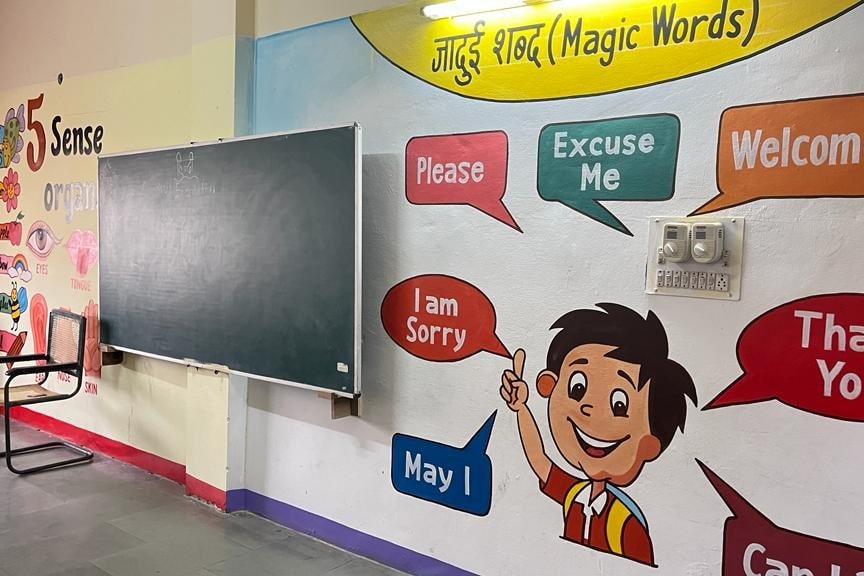Life At School
What Our Student Learn...
At Little Learners Academy, we strive to cultivate a love for learning and equip children with essential skills for their future success. Our academic programs cover a wide range of subjects, allowing students to develop a strong foundation and discover their interests. Some key areas of learning include

Our smart classes
Number sense, basic operations, problem-solving, and logic.
Science
Exploring the natural world through hands-on experiments and investigations.
Physical Education
Promoting physical fitness, coordination, and teamwork.

Art and Crafts
Encouraging creativity through various art forms and crafts.

Language Art
Reading, writing, storytelling, and communication skills.

Social Studeies
Cultivating an understanding of diverse cultures and communities.
At Pratibha Global School dedicated to providing a nurturing and stimulating environment for young learners. With a commitment to excellence in early education, we believe in shaping curious minds and building a strong foundation for a lifelong love of learning. Our holistic approach fosters intellectual, social, emotional, and physical development, ensuring that each child reaches their full potential.
Life At School
- Academic Learning : The primary purpose of school is academic education. Students engage in a structured curriculum, attending classes, completing assignments, and taking exams. The subjects studied can vary, including mathematics, science, literature, social studies, and more.
- Social Interaction : School is a social environment where students interact with their peers, teachers, and other staff members. Building social skills, making friends, and learning to navigate social dynamics are important aspects of school life.
- Extracurricular Activities : Many schools offer extracurricular activities such as sports, music, drama, art, and clubs. Participating in these activities provides students with opportunities to explore their interests beyond the classroom and develop new skills.
- Personal Development : School is a place where students not only gain knowledge but also develop personally. They learn to manage their time, set goals, and take responsibility for their actions. Teachers and mentors often play a role in guiding students through this personal development.
- Challenges and Stress : Academic pressures, social expectations, and the challenges of growing up can contribute to stress for students. Learning to manage stress, cope with challenges, and seek support when needed are important life skills developed during school.
- Friendships and Relationships : School is a significant environment for building friendships and relationships. Students form bonds with classmates and teachers, creating a support system that can last a lifetime.
- Preparation for the Future : School is a significant environment for building friendships and relationships. Students form bonds with classmates and teachers, creating a support system that can last a lifetime.
- Diversity and Inclusion : Schools often bring together a diverse group of students with different backgrounds, cultures, and perspectives. Learning to appreciate and respect diversity is an essential aspect of school life.
- Rules and Discipline : Schools have rules and disciplinary measures in place to maintain a safe and conducive learning environment. Students learn about responsibility and consequences for their actions.
- Memorable Experiences : School life is often filled with memorable experiences, such as field trips, special events, and achievements. These experiences contribute to a student's overall education and form lasting memories.